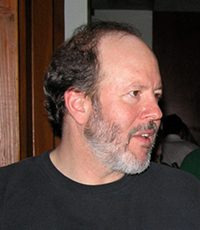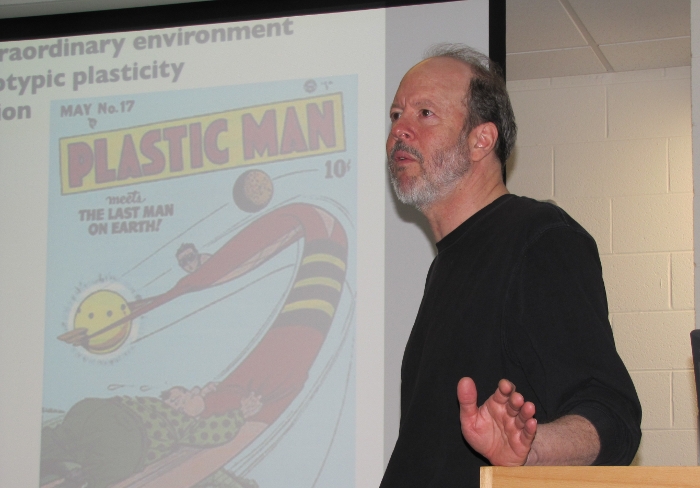NIMBioS Tuesday Seminar Series
In conjunction with the interdisciplinary activities of the National Institute for Mathematical and Biological Synthesis (NIMBioS), a seminar series will be hosted at NIMBioS every other Tuesday at 3:30 p.m. in the NIMBioS Lecture Hall on the 4th floor of 1534 White Ave., Suite 400 Seminar speakers will focus on their research initiatives at the interface of mathematics and many areas of the life sciences. Light refreshments will be served starting at 3 p.m.
 Time/Date/Location: 3:30 p.m., February 28, NIMBioS Lecture Hall, 1534 White Ave., Suite 400
Time/Date/Location: 3:30 p.m., February 28, NIMBioS Lecture Hall, 1534 White Ave., Suite 400
Speaker: Russell Lande, Natural Sciences, Imperial College London; NIMBioS Postdoctoral Fellows Invited Distinguished Visitor
(Wikipedia entry)
Topic: Adaptation to an extraordinary environment by evolution of phenotypic plasticity and genetic assimilation
Abstract: Adaptation to a sudden extreme change of environment, beyond the usual range of background environmental fluctuations, is analyzed using a quantitative genetic model of phenotypic plasticity. Generations are discrete, with time lag tau between a critical period for environmental influence on individual development and natural selection on adult phenotypes. The optimum phenotype, and genotypic norms of reaction, are linear functions of the environment. Reaction norm elevation and slope (plasticity) vary among genotypes. Initially, in the average background environment, the character is canalized with minimum genetic and phenotypic variance, and no correlation between reaction norm elevation and slope. The optimal plasticity is proportional to the predictability of environmental fluctuations over time lag tau. The first generation in the new environment the mean fitness suddenly drops and the mean phenotype jumps toward the new optimum phenotype by plasticity. Subsequent adaptation occurs in two phases. Rapid evolution of increased plasticity allows the mean phenotype to closely approach the new optimum. The new phenotype then undergoes slow genetic assimilation, with reduction of plasticity compensated by genetic evolution of reaction norm elevation in the original environment.
*Join us for refreshments in the NIMBioS Lobby on the 4th floor at 3 p.m.
Seminar Flyer (pdf)

NIMBioS
1122 Volunteer Blvd., Suite 106
University of Tennessee
Knoxville,
TN 37996-3410
PH: (865) 974-9334
FAX: (865) 974-9461
Contact NIMBioS


